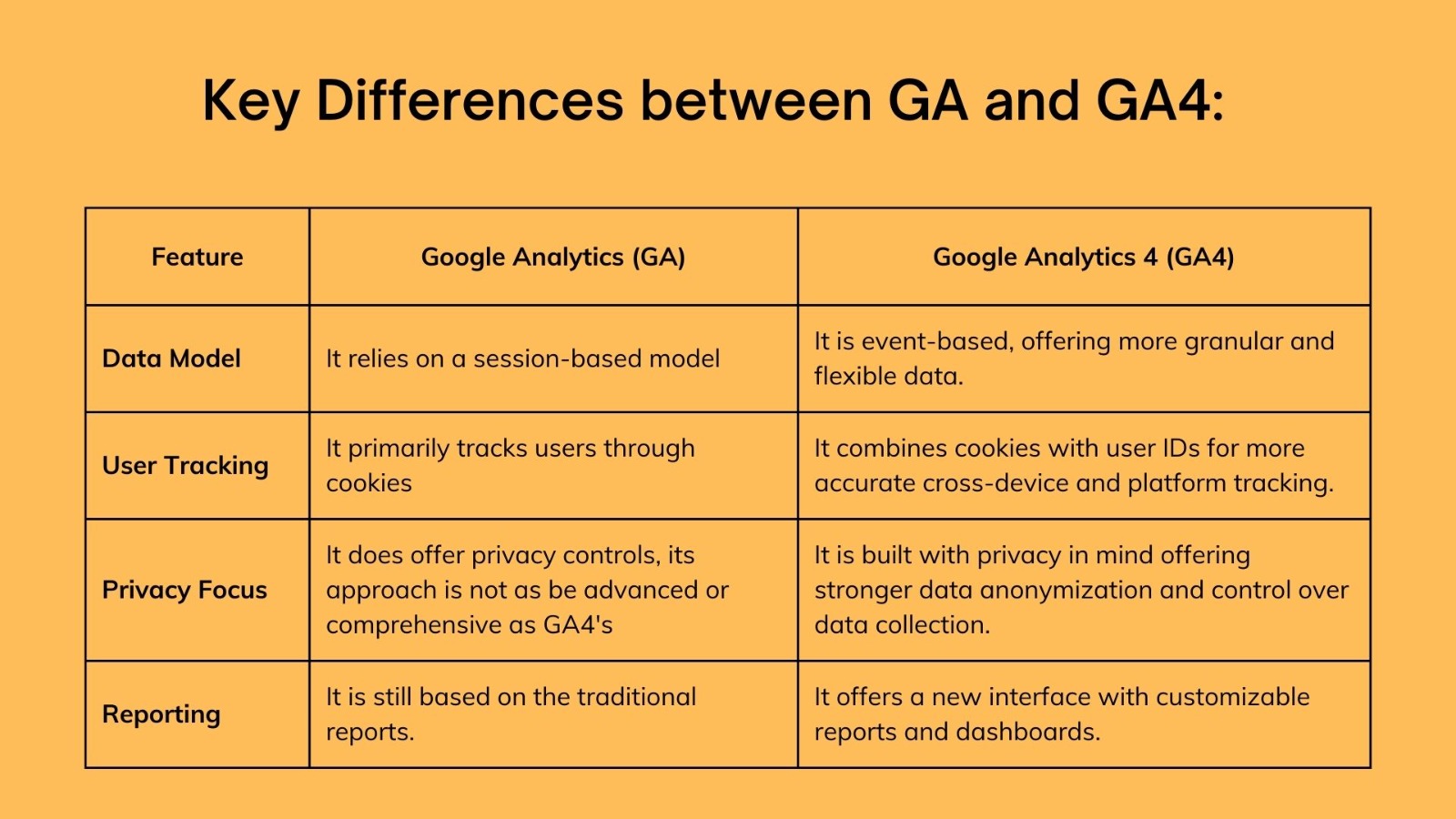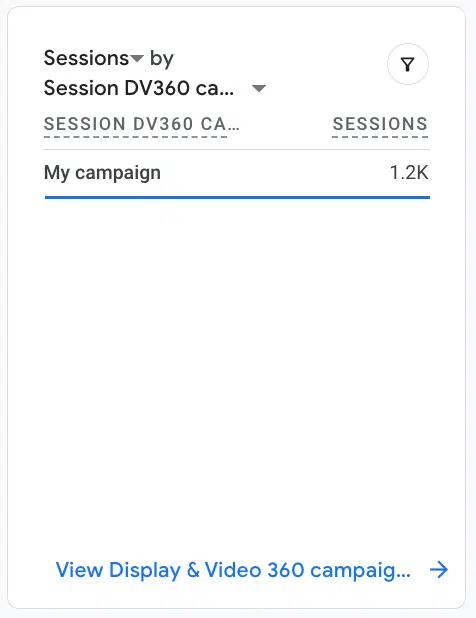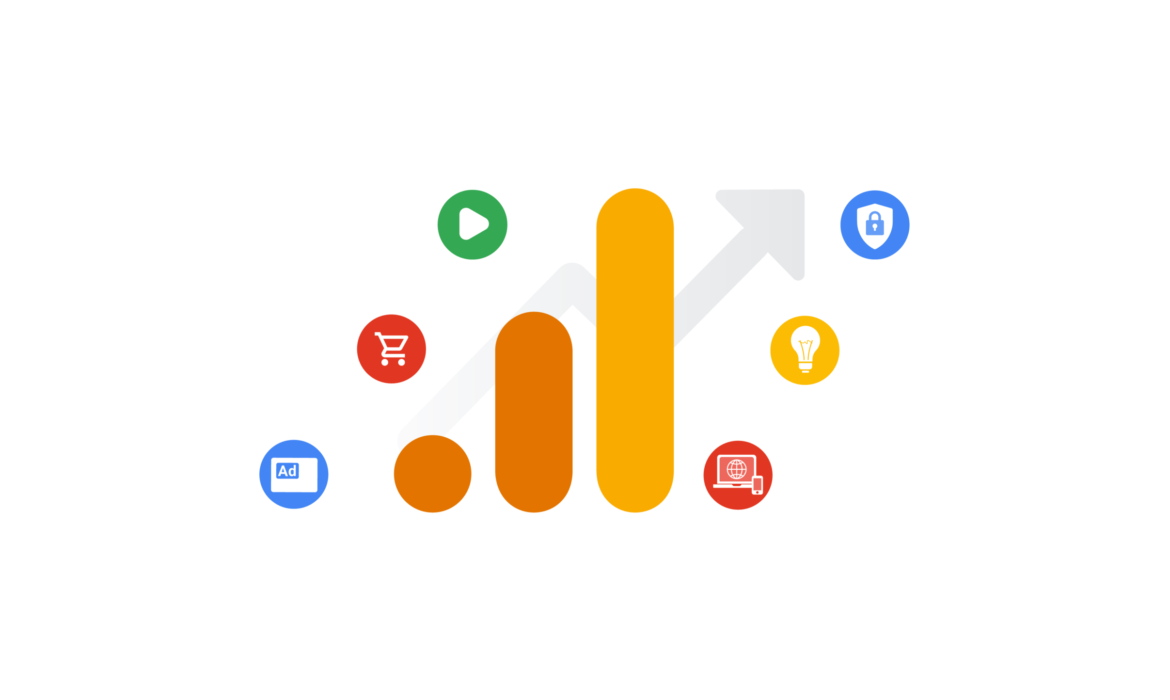From Puzzling Pages to Smiling Clients: Unlocking Customer Delight with GA4 Events
What is GA?
Google Analytics (GA) is a powerful tool that has been the go-to solution for website and app analysis for years. It tracks user behavior by measuring pageviews, sessions, and other traditional metrics, providing valuable insights into how users interact with your digital property.What is GA4?
GA4, the next generation of Google Analytics, marks a significant shift in how we analyze user behavior. Instead of focusing on pageviews, GA4 takes an event-based approach. Every user interaction, from button clicks and video plays to form submissions and app screen views, is recorded as an event, painting a much richer picture of the user journey.Key Differences between GA and GA4:

Why should you care about GA4 events?
This event-based approach unlocks a treasure trove of insights that were previously hidden from view:- Pinpoint User Engagement: Identify the exact elements driving engagement, like blog posts sparking social shares or features leading to higher conversions.
- Discover Hidden Gems: Unearth content users devour but traditional analytics neglect, allowing you to optimize your digital experience for maximum impact.
- Understand Micro-conversions: Track micro-interactions like video previews or carousel swipes, providing a deeper understanding of the user journey before the final conversion.
- Tailor Content and Campaigns: Use detailed event data to personalize content and target campaigns based on specific user behaviors and interests.
Forget Pageviews, Embrace the Power of Events:
Read More: AdTechStats 2023 By ADScholars: Understanding the Ad Trends To Strategize Advertising in 2024.
Case Study 1: E-commerce Emporium – From Wishlists to Wallets with GA4 Events
Meet “Trendy Treasures,” a struggling online fashion retailer drowning in abandoned wishlists. Armed with GA4, we tracked “Add to Wishlist” and “Wishlist Removal” events. Surprise! Users loved adding items to their wishlists but rarely converted them to purchases. We suspected indecisiveness and launched a targeted email campaign offering limited-time discounts on wishlisted items. Presto! Conversions from wishlists skyrocketed by 20%, and our client’s smile could light up a runway!Case Study 2: Travel Titans – Tailoring Journeys with GA4 Insights
Picture “Adventure Horizons,” a travel agency struggling to attract young explorers. Using GA4’s custom events, we tracked “Blog Post Read Time” and “Off-the-Beaten-Path Tour Quote Download.” Analyzing parameter data, we discovered their most engaged readers devoured articles about budget-friendly adventures. We pivoted their content strategy, highlighting niche destinations and affordable tours. The result? A 30% increase in quote downloads for those categories, and a client ecstatic about finally connecting with their target audience!Case Study 3: Service Savvy – Streamlining Efficiency with GA4 Events
Think of “Tech Tigers,” an IT service provider battling overwhelmed agents and frustrated customers. With GA4, we tracked “Live Chat Initiate” and “Ticket Resolution Time.” Shockingly, many users initiated chats for simple questions already answered in their FAQ section. We created targeted chat prompts and linked relevant FAQs, reducing chat volume by 35% and freeing up agents for complex issues. A client thrilled with faster service and happier customers? You bet!Beyond Data Dazzling: Turning Insights into Actionable Magic
Data is like raw dough – powerful but needing the right touch to become a delicious treat. Here’s how to transform your GA4 insights into client-pleasing action:- Speak the language of business, not data science: Present findings in clear, concise language, highlighting their impact on business goals. No jargon, just results!
- Be the data-driven strategist, not just the reporter: Analyze your findings and propose data-backed strategies for website optimization, content creation, and targeted campaigns. Show your clients you’re not just reporting, you’re strategizing for success!
- Celebrate the journey, not just the destination: Regularly report progress and results. Track key metrics, show improvements, and celebrate successes together. Transparency builds trust and keeps clients smiling.
GA4: Your Gateway to Client Bliss
In a data-driven world, GA4 events offer the power to make sense of it all, and more importantly, turn insights into client-satisfying action. Embrace this event-based revolution, unleash the data wizard within you, and watch your Indian business soar. Remember, the future of marketing lies not in pageviews, but in the intricate dance of user actions captured through GA4 events. So, grab your data wand, put on your client-satisfaction cloak, and start weaving your digital marketing magic – the GA4 stage awaits!Read More: Unlocking the Power of AI in Digital Marketing: A Comprehensive Guide

Ali Masthan
Google Search | Display Ads | DV 360 | GAM 360 | Paid Social | Media Planning and Strategy
With over 12 years of experience in media planning, strategy, and content marketing, Ali Masthan is a digital marketing veteran passionate about helping businesses build ethical and sustainable customer relationships. He believes that transparency, respect, and quality content are key to earning trust and achieving long-term success. Follow Ali for insightful tips and strategies to navigate the ever-evolving digital landscape.
Google Analytics Introduces 3 New Reports for 360-Ad Platforms
Google Analytics 4 has three new reports available. Users will be able to examine information from Search Ads 360, Display & Video 360, and Campaign Manager 360 in these reports. Those who have correctly integrated these 360-degree ad platforms with Google Analytics 4 can now access them. Furthermore, they can assess the efficacy of campaigns at generating traffic and converting leads. By incorporating these reports into GA4, campaign effectiveness analysis ought to be made simpler. Additionally, it ought to provide advertisers with better outcomes.
The 360-ad platforms
Search Ads 360 is a platform for managing searches. It supports Microsoft Advertising, Baidu, Yahoo Japan, and Google Ads campaigns. Campaign Manager 360 is a tool designed to manage advertising campaigns on mobile and web platforms. It handles ad serving, targeting, verification, and reporting. Display & Video 360 makes it easier to create ads, manage audience data, buy inventory, and improve campaigns.
Campaign performance with the new reports
The performance of campaigns created on the corresponding 360 ad platforms is detailed in each of the three new reports. By choosing the integration-specific summary card that has been added to the Acquisition overview report, users can access these reports. A user will see an option labeled “View Display & Video 360 campaigns,” for example, if they integrate Display & Video 360. The new Display & Video 360 report will open when this option is clicked.

Image credit- Search Engine Land
A user can still access the report from the Acquisition overview report and continue analyzing historical data even if they choose to unlink a buying platform from their property. Additionally, Google Analytics 4 has added new traffic source dimensions to support the new acquisition reports. When a user clicks on a link to Campaign Manager 360, Display & Video 360, or Search Ads 360, these dimensions become available. The event, session, and user scopes offer new dimensions.
Read More: Google Plans to Introduce Programmatic Support for Limited Ads
New Traffic Sources Dimensions
Google has added more traffic source dimensions to the new acquisition reports. When the 360 platforms are connected and used at the event, session, and user level, these dimensions become available. With this update, one can understand cross-channel acquisition data by using cross-channel dimensions, like
Source
Here is where the traffic originates, such as from search engines like Google, social media sites like Facebook, direct users who enter your URL, or one of your newsletters, spring_newsletter.
First-user source
This shows where most of the site’s initial visitors come from. For example, if the first user source is “organic,” this indicates that the users found the website or app through natural search results, such as Google.
Session source
This displays the most popular original source for a group of website user interactions that take place in a given amount of time.
Furthermore, to comprehend cross-channel acquisition data, one can make use of integration-specific dimensions such as Source, Session Source, and First User Source. Then, in order to better understand where the traffic is coming from, they can use new integration-specific dimensions, such as SA360 source, SA360 session source, and SA360 first user source, to analyze acquisition data for a particular buying platform.
Read More: Google Launches Google Ads Data Manager for First-Party Data
WPP and Optimizely Team Up for Data-Driven Digital Experiences
WPP and Optimizely, one of the market leaders in digital experience platforms (DXPs), have formed a strategic worldwide relationship. The alliance will aim at assisting clients in offering customers enhanced digital experiences. This groundbreaking collaboration will serve as WPP’s principal digital experimentation focus and Optimizely’s first global strategic undertaking.
Informed digital experience-focused deal
WPP and Optimizely have collaborated for 17 years through businesses like ACCO businesses, Aegon, Oister, etc. These days, customer standards are higher than ever. With this partnership, Optimizely will enable digital innovation and potential for WPP’s enterprise clients. As a platinum partner of Optimizely, WPP is privy to the latter’s DXP toolkit. These tools include experimentation, commerce, content management, and marketing. By utilizing these technologies, businesses will be able to leverage data to continually improve their digital experiences to increase engagement, conversions, and ROI.
As Google launches Google Optimize, its web and analytics product later this year, the strategic collaboration will also extend to enable partners to seamlessly connect Optimizely’s Web Experimentation and Google Analytics (GA4). WPP and Optimizely have agreed to work together to ensure a smooth transition to a new experimental network that will help brands deliver pertinent features and content.
Read More: Hypermedia Launches Z gallery, A premium OOH Art Experience
Here’s what they said
Stephan Pretorius, chief technology officer at WPP stated in the announcement,
“Powerful creativity and effective media strategy can be wasted if brands do not also prioritise conversion. Optimizely’s platform provides data that allows brands to maximise the chance of driving customers through the ideal journey across channels, and we’re excited to develop a joint offering to take to our shared clients.”
Alex Atzberger, CEO of Optimizely remarked,
“The world’s leading companies must have world-leading digital experiences, which can only be achieved through a test and learn approach. Together, WPP and Optimizely will ensure customers get the most out of their experimentation programmes so they can turn insights into increased conversions. We are thrilled to kick off this partnership.”
About Optimizely
The goal of Optimizely is to assist people in realizing their full digital potential. They achieve this by reimagining the way that product and marketing teams collaborate to design and enhance digital experiences across multi-channels. They assist businesses all over the world in orchestrating their whole content lifecycle, monetizing each digital experience, and conducting experiments across every customer interaction with the aid of their industry-leading digital experience platforms (DXP). In its 21 international offices, Optimizely employs nearly 1500 people and has more than 700 partners. More than 10,000 companies, including H&M, PayPal, Zoom, Toyota, and Vodafone, benefit from their assistance to improve client lifetime value, boost sales, and develop their brands.
Read more: WPP and Spotify Form A Unique Revolutionary Partnership
An End To A New Beginning: French Websites Ordered To Stop Using Google Analytics
The French Data Protection Authority (CNIL) ordered three French websites to stop using the analytical audience site Google Analytics deemed to violate the General Data Protection Regulation (GDPR). The decision came to light, weeks after a similar groundbreaking decision by the Austrian Data Protection Authority. The websites have 30 days to comply or risk hefty fines up to €20 million, or 4% of the annual turnover.
Google Analytics allows you to track how many people go to your website by integrating it. For each visitor, a unique identifier is assigned. Google transfers this identifier (which is personal data) and the corresponding data to the United States.
CNIL received several complaints from NOYB about the transfer of data collected from their site visitors via Google Analytics to the United States. Max Schrems, chair of the European Center for Digital Rights (NOYB), sent these complaints to several data protection authorities (DPAs), including the Austrian and French DPAs, in 2020.
It’s no secret that many websites use Google Analytics to learn more about their audiences. With privacy laws tightening, especially across Europe, and the GDPR still being sorted out, there will be an increase in services flouting GDPR. A concern in a global economy is the potential for separate products for the EU and the U.S.
Interesting Read: 6 Data Privacy Trends To Look Out For In 2022!
Insufficient Measures under Schrems II
In the course of its evaluation, the CNIL reviewed the consequences of the Schrems II decision of the Court of Justice of the European Union on 16 July 2020, which rendered the Privacy Shield invalid. According to the Court of Justice of the European Union (CJEU), the personal information transferred to the United States could be accessed by American intelligence services if the transfers are not properly regulated.
DPA’s have concluded that transfers to the United States are currently not adequately regulated. As a matter of fact, it says that in the absence of an adequate decision, the transfer of data cannot take place without securing appropriate guarantees for this flow specifically.
However, soon it was found that this was not the case. In fact, Google has adopted additional measures to regulate data transfers when it comes to the Google Analytics functionality, but they are not sufficient to ensure data confidentiality. Therefore, French website users are exposed to risk if they use this service and their data is exported.
As a result, the first decision was issued by the Austrian DPA earlier in January, followed by the decision by CNIL in early February.
Is Europe banning Google Analytics?
The CNIL notes that as a result, the data of Internet users is transferred to the USA in violation of Article 44 GDPR. Therefore, the CNIL ordered the website manager to bring this processing in line with GDPR, so that either Google Analytics will not be used (under current conditions) or a new tool will be used that does not involve a transfer outside the EU.
The CNIL recommends that website measurement and analysis tools should only be used to produce anonymous statistics, thus absolving the controller of any consent requirements if the transfer is legal. It has launched an evaluation program to determine which solutions are exempt from consent. The French data protection authority has also issued other orders to website operators using Google Analytics. Max Schrems said,
“In the long run we either need proper protections in the US, or we will end up with separate products for the US and the EU. I would personally prefer better protections in the US, but this is up to the US legislator – not to anyone in Europe.”
The CNIL is widely regarded as Europe’s regulatory powerhouse. The Dutch regulator has already stated that it will follow in the footsteps of the CNIL. DPAs in Germany, Spain, Portugal, and Poland are expected to make similar decisions in the coming months, cracking down on illegal personal data transfer between the US and the EU.
Interesting Read: Amazon Blocks Google FLoC – Here’s Everything You Need To Know!





